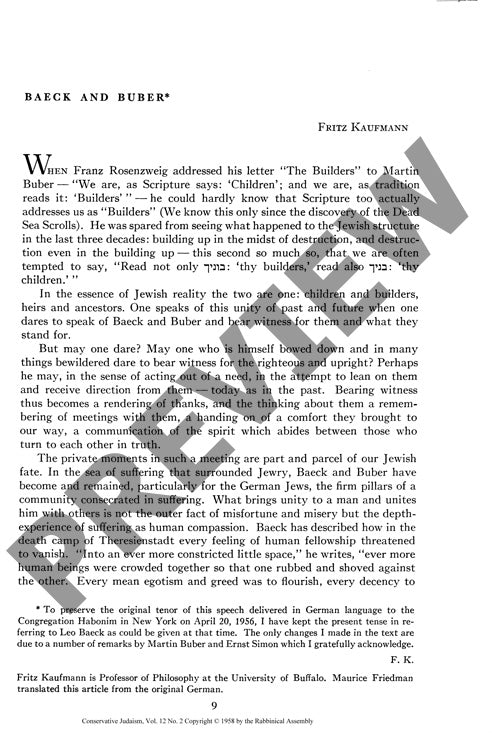Baeck and Buber
Couldn't load pickup availability
Leo Baeck and Martin Buber emerged as transformative spiritual leaders who sustained Jewish identity and thought during the darkest period of German-Jewish history. Through personal encounters and correspondence, their contrasting yet complementary approaches to Jewish theology illuminate how religious leadership adapted to unprecedented crisis. While Baeck's liberal, aristocratic humanism drew from the German-Jewish Wissenschaft tradition, Buber's mystical socialism found inspiration in Hasidism and Zionist thought. Both men exemplified the Tzaddikim (righteous ones) tradition, maintaining unwavering faith in divine creation and human renewal despite persecution. Baeck demonstrated this through his steadfast leadership in Theresienstadt concentration camp, while Buber fostered spiritual resistance through adult education programs. Drawing on biographical and philosophical analysis, this examination reveals how their distinct backgrounds—Baeck's immersion in liberal German culture and Buber's roots in Eastern European Jewish mysticism—shaped their unique contributions to Jewish thought and community leadership. Together, they represent the unity of past and future in Jewish existence, serving as both "builders" and "children" of the covenant who preserved Jewish spiritual life through dialogue, education, and moral witness.

More Information
-
Physical Description
-
Publication Information
Published 1958
ISBN
-
Publication Credits
Fritz Kaufmann

